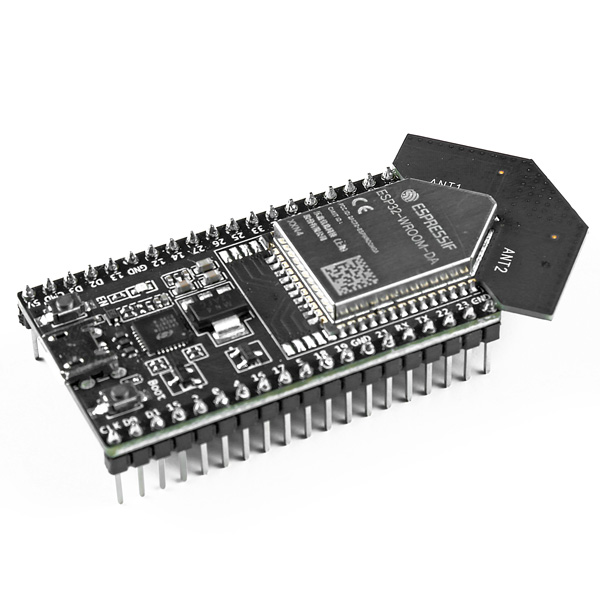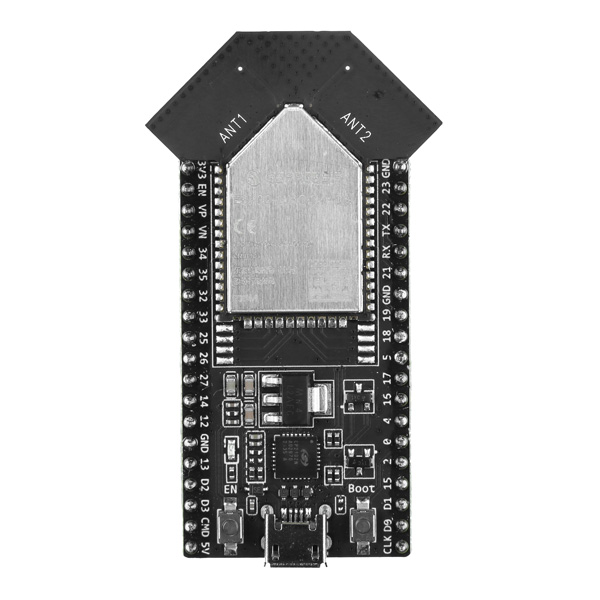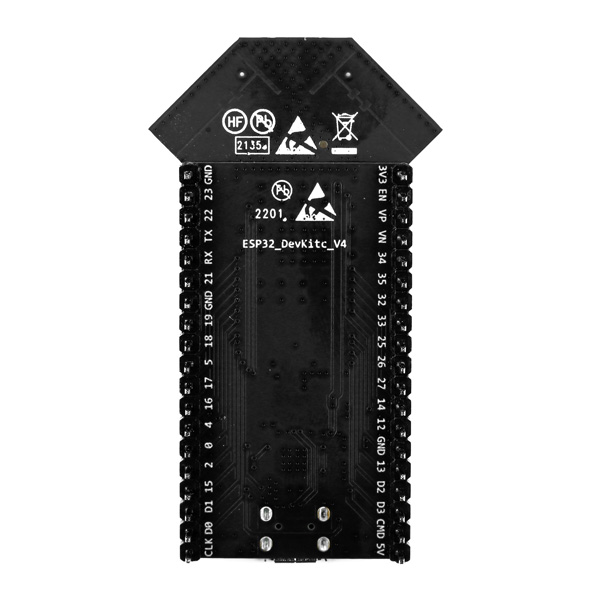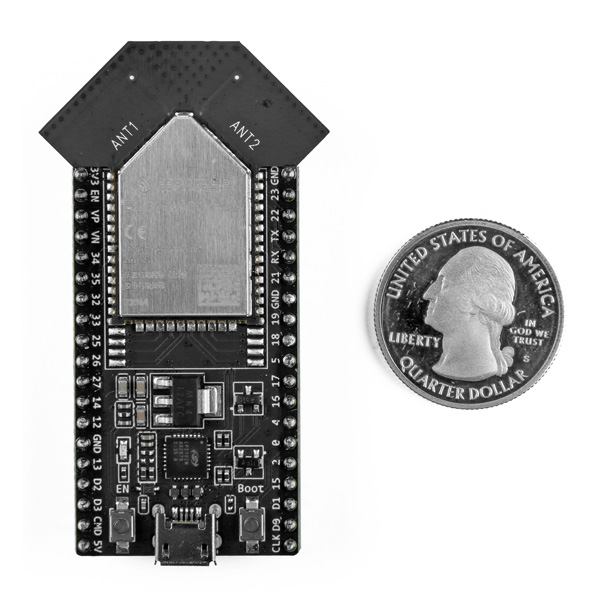ESP32-DevKitC is a low-footprint and entry-level development board that is part of the ESP32 series. This board has a rich peripheral set. The built-in ESP32 pinout is optimized for hassle-free prototyping!
This breadboard friendly development board features the ESP32-WROOM-DA which is a module that achieves high-quality, wireless connectivity across large areas, using two complementary PCB antennas in different directions. Also, based on its industry-leading technical specifications, the co-existence of WiFi and Bluetooth® (Classic & Low-Energy) connectivity, and its low-power consumption modes, the users of ESP32-WROOM-DA will be able to bring to life a wide range of complex IoT application scenarios.
Note: Not all pins are broken out and some have more than one role. The pins D0, D1, D2, D3, CMD and CLK are used internally for communication between ESP32 and SPI flash memory. They are grouped on both sides near the USB connector. Avoid using these pins, as it may disrupt access to the SPI flash memory / SPI RAM.
- Based on the ESP32-WROOM-DA
- Most pins from the ESP32 Module Broken Out With Support For:
- PWM
- ADC
- DAC
- I²C
- I²S
- SPI
- Reset Button
- Boot Button
- MicroUSB Port
- 5v Power LED
- USB to UART Bridge
ESP32 DevKitC Dual Antenna Product Help and Resources
Core Skill: Programming
If a board needs code or communicates somehow, you're going to need to know how to program or interface with it. The programming skill is all about communication and code.
Skill Level: Competent - The toolchain for programming is a bit more complex and will examples may not be explicitly provided for you. You will be required to have a fundamental knowledge of programming and be required to provide your own code. You may need to modify existing libraries or code to work with your specific hardware. Sensor and hardware interfaces will be SPI or I2C.
See all skill levels
Core Skill: Electrical Prototyping
If it requires power, you need to know how much, what all the pins do, and how to hook it up. You may need to reference datasheets, schematics, and know the ins and outs of electronics.
Skill Level: Rookie - You may be required to know a bit more about the component, such as orientation, or how to hook it up, in addition to power requirements. You will need to understand polarized components.
See all skill levels
Comments
Looking for answers to technical questions?
We welcome your comments and suggestions below. However, if you are looking for solutions to technical questions please see our Technical Assistance page.
Customer Reviews
No reviews yet.




